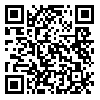1. Crandall A, Barlow M. Validation of the family health scale among heterosexual couples: a dyadic analysis. BMC Public Health. 2022;22(1):84. [
DOI]
2. Ostadabasi S, Safarzadeh S. Relationship between the original family health and mindfulness with sacrificial behavior, equity perception and marital commitment in married female students in Ahvaz. Women and Society. 2022;13(49):17–28. [Persian] [
Article]
3. Sourinejad H, Reisi Dehkordi Z, Kohan S, Shams M, Adibmoghaddam E. Comparison of parenting style and mental health in single-child and multiple-children mothers in Isfahan, Iran. Scientific Journal of Nursing & Midwifery and Paramedical Faculty. 2020;5(4):62–71. [Persian] [
Article]
4. Zokaeifar A, Mousazadeh T. The role of parental parenting styles in predicting social development of preschool children 5 and 6. Social Psychology Research. 2020;10(37):87–100. [Persian] [
Article]
5. Baumrind D. Effective parenting during the early adolescent transition. In: Cowan PE, Hethrington EM; editors. Advances in family research. Hillsdale, NJ: Lawrence Erlbaum Associates;1991.
6. Darling N, Steinberg L. Parenting style as context: an integrative model. Psychological Bulletin. 1993;113(3):487.
7. Baumrind D. The influences of parenting style on adolescent competence and substance use. The Journal of Erly Adolescence. 1991;11:56-95. [
DOI]
8. Amani M. Prediction of mothers' parenting styles through their attachment styles and personality traits. Rooyesh-e-Ravanshenasi. 2019;7(11):193-211. [Persian]
9. Baumrind D. The influence of parenting style on adolescent competence and substance use. The Journal of Early Adolescence. 1991;11(1):56–95. [
DOI]
10. Shamsi Houjgan M, Bahreini M, Ravanipour M, Bagherzadeh R. Investigating the relationship between mothers' parenting styles and social skills of primary school children. Iranian Journal of Psychiatric Nursing. 2020;8(5):97–107. [Persian] [
Article]
11. Refahi Z, Taheri M. Predicting mothers' parenting styles based on their early schemas and attachment styles. Quarterly Journal of Women and Society. 2019;10(37):167–96. [Persian] [
Article]
12. Lawshe CH. A quantitative approach to content validity. Personnel Psychology. 1975;28(4):563–75. [
DOI]
13. Waltz CF, Bausell RB. Nursing research: design, statistics, and computer analysis. F.A. Davis Company; 1981.
14. Webb NM, Shavelson RJ, Haertel EH. 4 Reliability coefficients and generalizability theory. In: Wobb NM, Shavelson RJ, Haertel EH; editors. Handbook of statistics. Elsevier; 2006. [
DOI]
15. Meyers LS, Gamst GC, Guarino AJ. Applied multivariate research-design and interpretation. Thousand Oaks: Sage Pub; 2006.
16. Heidari M, Dehghani M, Khodapanahi MK. The impact of perceived parenting style and gender on self-handicapping. Family Research. 2009;5(2):125–37. [Persian] [
Article]
17. Berg-Nielsen TS, Vikan A, Dahl AA. Parenting related to child and parental psychopathology: a descriptive review of the literature. Clin Child Psychol Psychiatry. 2002;7(4):529–52. [
DOI]
18. Decaluwé V, Braet C, Moens E, Van Vlierberghe L. The association of parental characteristics and psychological problems in obese youngsters. Int J Obes. 2006;30(12):1766–74. [
DOI]
19. Mohammad Esmael E, Mousavi H S. An investigation on mental health of mothers with behaviorally Disordered children. Journal of Exceptional Children. 2003;3(2):105-16. [Persian] [
Article]
20. Chaudhury P, Bhattacharya B, Saha PK. Parent–child relationship and marital quality of parents of conduct or oppositional defiant disorder and unaffected individuals: a comparative study. Psychol Stud. 2020;65(2):124–36. [
DOI]
21. Dickson E, Agyemang CB, Afful J. Parental personality and parenting style: a Ghanaian perspective. Developing Country Studies. 2014;4(5):116–28.
22. Cobb-Clark D, Salamanca N, Zhu A. Parenting style as an investment in human development. J Popul Econ. 2019;32:1315–52. [
DOI]
23. Cicchetti D, Lynch M. Toward an ecological/transactional model of community violence and child maltreatment: consequences for children's development. Psychiatry Interpersonal & Biological Processes. 1993;56(1):96–118. [
DOI]
24. Pourshahriar H, Alizade H, Rajaeinia K. Childhood emotional abuse and borderline personality disorder features: the mediating roles of attachment style and emotion regulation. Iranian Journal of Psychiatry & Clinical Psychology. 2018;24(2):148–63. [Persian] [
DOI]
25. Sallis JF, Glanz K. The role of built environments in physical activity, eating, and obesity in childhood. The Future of Children. 2006;16(1):89–108. [
DOI]
26. Votruba-Drzal E, Lindsay Chase-Lansdale P. Child care and low-income children's development: direct and moderated effects. Child Development. 2004;75(1):296–312. [
Article]
27. Afshar K, Kord Tamini B, Kehrazei F. The mediating role of cognitive-emotion regulation strategies in the relationship between theoryof mind with negative emotions (anxiety, depression, stress) of parents of exceptional children in Mashhad daily rehabilitation centers. Cognitive Psychology. 2019;7(2):1–17. [Persian] [
Article]

 ، حکیمه آقایی*2
، حکیمه آقایی*2 
 ، شهناز نوحی2
، شهناز نوحی2 
 ، محمدصادق صبوری3
، محمدصادق صبوری3 




